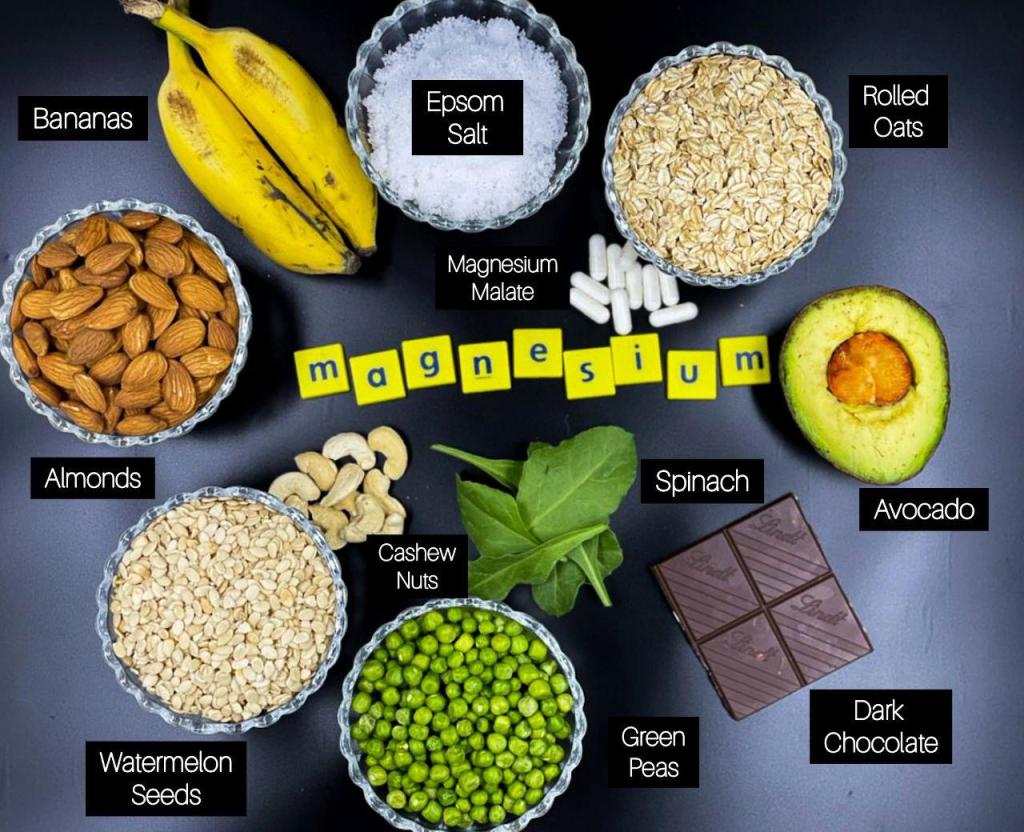Magnesium “The Most Neglected Micronutrient”
Magnesium is the fourth most common mineral in the human body after calcium, sodium, and potassium and is the second most common intracellular element after potassium. Magnesium is an essential element required as a cofactor for over 300 enzymatic reactions and is thus necessary for the biochemical functioning of numerous metabolic pathways, structural functions of proteins, nucleic acids and mitochondria.
Why most of us are Magnesium deficient?
1. Diminished level of magnesium in processed and non-organic foods
2. Cooking and boiling further reduces the magnesium content
3. Reduced absorption because of deficiency of Vitamin D
4. Modern disease medications such as antacids, antibiotics, cholesterol, diuretics, corticosteroids, diabetic etc
5. Soil depletion and expansion of monoculture agriculture techniques
6. Ageing
7. Excessive excretion with alcohol and reduce plasma concentration due to smoking
8. Digestive health, leaky GUT
9. Soda and fizzy drinks as it binds with magnesium ions
10. Increased requirements during stress and adrenal fatigue
11. Demineralized water
12. Loss of magnesium due to diarrhoea and laxatives use.
Signs and Symptoms of Magnesium Deficiency
If you have atleast 3-4 of below symptoms, it’s important to consider magnesium deficiency as missing link.
- Spasms or muscle soreness, cramps
- Fatigue, dizziness
- Irritability
- Headaches, migraines
- Inability to sleep or insomnia
- Anxiety or depression
- ?High level of stress
- Sensitivity to noise
- Difficulty in concentrating or fuzzy brain
- Loss of appetite
- Kidney stones
- Diabetic type 2
- Hypertension
- Impaired muscle coordination
- Constipation
- Difficulty swallowing and respiratory issue
- Calcium and potassium deficiency
What are some of immense health benefits of optimal level of Magnesium?
Healthy range of magnesium can help in few of below health benefits and many more
1. Regulate the hormone melatonin production thereby supporting in better sleep
2. Eliminate fatigue and muscle pain and cramps, boost energy
3. Increase muscle strength, slow aging as reduces oxidative stress
6. Regulate blood pressure thereby lower the risk of coronary heart disease
7. Reverse diabetes type 2 as this corrects metabolism and rectify Insulin resistance
8. Alkalizes the body and helps in bowel movements and constipation
9. It helps in curing autoimmune disease such as Thyroid Hashimoto’s being anti-inflammatory
10. Treats Insomnia, depression and migraine
11. Essential for women’s hormonal issues such as PCOS, PMS, Menopause, painful periods, infertility
12. Reduces bad cholesterols
13. Reduce obesity
14. Enhance intestinal absorption of calcium, iron, phosphate, zinc and Vitamin D3.
15. Prevent or reduce kidney stones (Calcium oxalate)
Lab Tests and Interpretations :
Serum magnesium ( Not reliable as it contributes to only 1 % of total body magnesium)
Red Blood Cell Magnesium (Not clinically available to every labs)
For optimal health we want to be at the high end of the range above 80th percentile. (on Lab range)
If RBC Magnesium is available, then test can be repeated every six months if on supplementation.
How to restore and maintain optimal Magnesium :
1. Magnesium rich diet which contains various nuts like almonds, brazil nuts, pecans, cashews, pine nuts, walnuts, peanuts, seeds like sunflower, pumpkin, watermelon, hemp, sesame green leafy vegetables like spinach, kale, turnips, swiss chard, ancient grains like amaranth, quinoa, buckwheat, steel cut oats, banana, dark chocolates (70% above), beans, lentils, non-vegetarian source like fish, tuna
2. Replace beer, coffee and fizzy drinks by herbal and green tea, or fruit infused water
3. Eliminate white sugar, refined flours and processed foods.
4. Snacks on nuts and seeds or their butters
5. Eat dark chocolate with > 70% of cocoa
6. Take an Epsom salt bathe or soaking
7. Practice belly breathing or alternate nostril breathing technique to reduce stress and anxiety
8. Take magnesium supplements under medical practitioners consultation
upplementation Guidelines :
Kindly check with your medical practitioners for dosage on supplementation.
Magnesium Glycinate : Gentlest form as it is best absorbed and doesn’t cause loose stools or diarrhoea
Magnesium Citrate : For constipation and kidney stone case
Magnesium Malate : Promotes ATP synthesis which result in more energy, less fatigue and help with fibromyalgia
Magnesium Taurate : Good for heart health
Some of worst oral form are : Magnesium oxide, Magnesium sulphate, Magnesium chloride,
Best form is chelated as it readily absorbed into the system.It is important to combine several forms of supplements based on your body needs and the supplement dose to be spread throughout the day. (like couple of times).
Word of caution for someone who is suffering with kidney disease as most of magnesium is excreted by kidney and lower blood pressure cases as magnesium supplements may drop the blood pressure.
Transdermal magnesium therapy
1. Magnesium Oil (Magnesium chloride)
2. Epsom salt (Magnesium sulphate) foot or bathtub soaking










Dietary Fiber And Prebiotics - Key Step For Optimal Health - Wellness By Rosh
26-Jul-21[…] the growth of gut microbiota. Helps in improving blood glucose control, increase calcium and magnesium […]